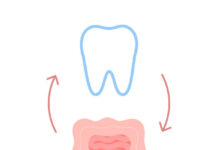Stress is an inevitable part of life that everyone experiences at some point. While you may think of stress primarily in terms of mental and emotional health, it can have significant repercussions on your physical well-being, especially your oral health. Understanding how stress affects your mouth can help you take proactive steps to mitigate its impact. If your stress levels has already affected your oral health, visit a dentist solihull. They’ll examine your condition and recommend the best treatment options. Here are four ways stress can influence your oral health.
- Increased Risk of Gum Disease
When you’re under stress, your body produces more cortisol, a hormone that can weaken your immune system. This weakening makes it harder for your body to fight off infections, including those that cause gum disease. If you neglect your oral hygiene during stressful periods—perhaps because you’re too busy or overwhelmed—you may not brush and floss as regularly or effectively. This can lead to the buildup of plaque, which contributes to gingivitis, the early stage of gum disease.
Moreover, stress can manifest in behaviors that are detrimental to your gums. For instance, when you’re anxious, you might chew on your nails, grind your teeth, or even bite your cheeks, all of which can irritate your gums. In severe cases, untreated gum disease can lead to more serious conditions, such as periodontitis, which not only affects your gums but can also impact your overall health. Regularly visiting an emergency dentist solihull for dental check-ups and maintaining a good oral hygiene routine can help you catch any early signs of gum disease before they develop into a more serious issue.
- Teeth Grinding and Jaw Clenching
Many people unconsciously grind their teeth or clench their jaws during stressful situations, which can lead to a host of dental problems. Over time, this repetitive grinding can wear down the enamel on your teeth, making them more susceptible to cavities and sensitivity. You may notice increased tooth sensitivity when consuming hot or cold foods or beverages, which can make eating less enjoyable.
Additionally, chronic bruxism can lead to more severe complications, such as temporomandibular joint (TMJ) disorders, which cause pain and discomfort in the jaw. The constant pressure on your teeth and jaw can result in headaches, earaches, and a general sense of discomfort. If you suspect that you’re grinding your teeth, it’s essential to talk to your dentist Solihull. They may recommend a custom mouthguard to protect your teeth and alleviate pressure on your jaw, helping you manage the effects of stress on your oral health.
- Dry Mouth
Stress can also lead to dry mouth, or xerostomia, which is often overlooked but can significantly impact your oral health. Stress triggers the body’s fight-or-flight response, which can reduce saliva production. Saliva is crucial for oral health because it helps wash away food particles, neutralize acids produced by bacteria in your mouth, and remineralize enamel. Without sufficient saliva, you may be at a higher risk for tooth decay and gum disease.
In addition, a dry mouth can lead to discomfort and difficulty swallowing, making it challenging to enjoy meals. You might find yourself drinking more water or consuming sugary or acidic drinks to alleviate the dryness, which can further exacerbate dental problems. To combat dry mouth, you can try drinking more water throughout the day, using alcohol-free mouth rinses, or chewing sugar-free gum to stimulate saliva production. If your dry mouth persists, consult your dentist for further recommendations and treatment options.
The Bottom Line
The impact of stress on oral health is profound. If you find yourself struggling with stress, consider exploring relaxation techniques such as meditation, yoga, or deep-breathing exercises. These practices can improve your mental well-being and contribute positively to your oral health.


























